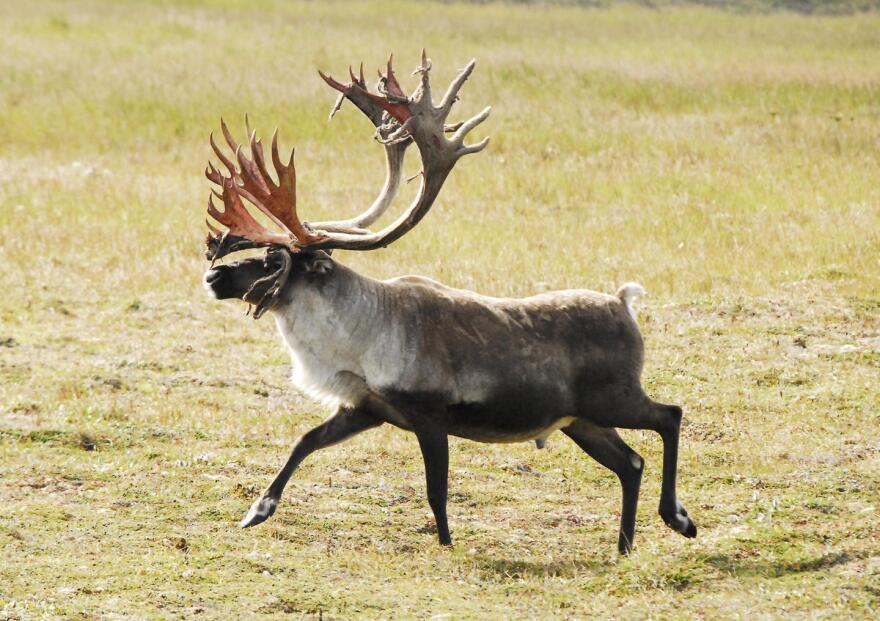Managers will open the Mulchatna caribou hunt on state and federal lands Aug. 1, despite a steep drop in the herd’s population in recent years.
Participation on federal lands is limited to federally qualified subsistence users from communities in or near game management units 9A, 9B, 9C, 17A, 17B, 17C, 18, 19A, and 19B. On state lands, the hunt is limited to state residents.
To participate, hunters must possess an RC-503 permit, and they must submit their harvest report within five days of bagging an animal.
Todd Rinaldi, the Region 4 management coordinator for the Alaska Department of Fish and Game, says that federal and state managers are opening the hunt because they want to provide subsistence opportunities to residents.
“We were concerned, while this pandemic is ongoing and there are some difficulties that folks are facing, we wanted to be able to provide some food resources and some opportunity to harvest caribou out there this fall, while still keeping an eye on conservation of the herd and trying to grow that herd,” he said.
The hunt opens at 12:00 a.m. on Aug. 1 and closes at 11:59 p.m. on Sept. 20. The Federal Subsistence Board says that there will be no winter hunt. The bag limit is one bull, but the subsistence board says that to allow for herd growth, hunters must avoid harvesting any cows.
The Mulchatna herd’s western range includes Bristol Bay and the Kuskokwim River area. Biologists recorded around 13,500 caribou during surveys this summer, on par with last year’s estimates. That’s about half of what it was five years ago, and less than half of the state’s minimum population objective of 30,000 animals.
The drastic reduction in the herd’s numbers prompted both state and federal managers to close last season early. Although the population is around the same size this year, managers felt comfortable opening the hunt in a limited capacity. Rinaldi says that’s based on historic estimates.
“Even though the bulk of a herd may be in a specific area, there are still satellite groups that are found throughout the range, usually splinter groups of a handful number of animals," Rinaldi said. "When we went out to do our photo census this year, it was our top priority to locate the satellite groups to cover the range of the Mulchatna caribou herd to an extent we can confirm or dismiss last year’s population census estimate.”
Rinaldi also says that it’s important for hunters to submit harvest reports as soon as possible.
“That’s information that the department needs to manage efficiently and effectively the Mulchatna caribou herd," he explained. "For those that are successful in taking a bull caribou this fall, we request that they report their take to the department within five days of success. Because if we want to still provide a sustainable food resource for folks out there, we’re going to have to take management steps."
Some of those management steps include determining if herds are eligible for a season, and what harvest limits are necessary. If hunters get a permit but do not go hunting or harvest an animal, they should still return a hunting report within 15 days of the close of the season.



